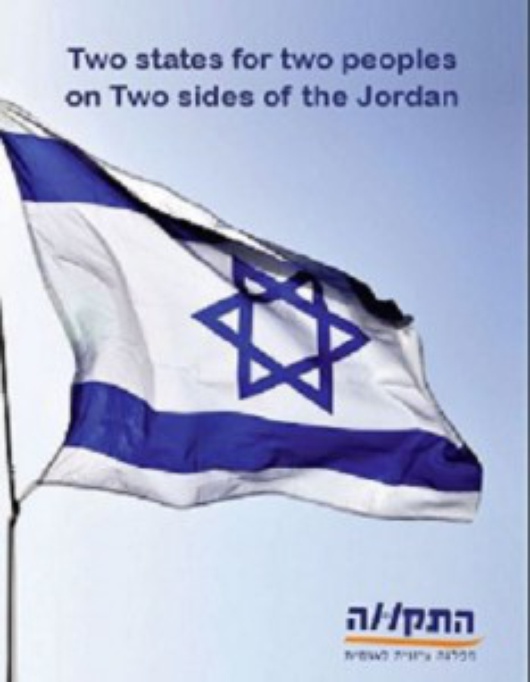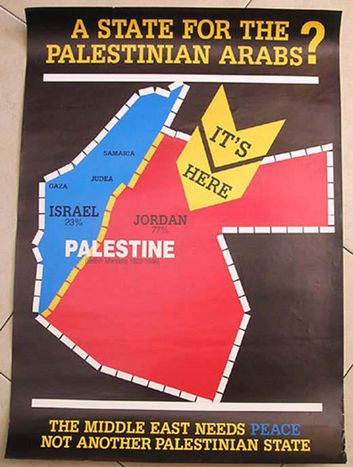
Palestinians Put Jordanian Option on the Table
Published on
Article (short version) first published as Palestinians Put Jordanian Option on the Table on Technorati. Farouk Kaddoumi, a veteran PLO official, dropped a political bomb (on 31st Oct. 2012) with a call for “returning” the West Bank to Jordan during an interview with the London-based Al- Quds Al-Arabi newspaper.
Kaddoumi, who is based in Tunisia, said he supported the idea of a federation or confederation between the West Bank and Jordan. His remarks are the first of their kind to be voiced by a senior PLO figure in decades.
Kaddoumi is one of the founders of Fatah, and for decades served as head of the PLO’s “political department.” He is one of the few PLO leaders who refused to move from Tunisia to the Palestinian territories after the signing of the Oslo Accords, which he had strongly opposed. Kaddoumi told the newspaper that giving the West Bank back to Jordan would be a “positive move.”; however he added that the Palestinians should not drop their demand for a right to return to Israel proper. He also said the Palestinians had lost hope of reaching an agreement with Israel that would ensure them their minimal rights. “Unfortunately, Israel has seized most of the lands of the West Bank and the only way left for us is the national resistance,” he said. “Regrettably, the Palestinian Authority and its president do not want any kind of resistance after they got rid of the fighters who say that resistance is the only want to liberate the land.” (Source: JPost )
Kaddoumi’s remarks about returning the West Bank to Jordan apparently came in response to recent statements made by Jordan’s Prince Hassan bin Talal, who served as crown prince between 1965 and 1999. Recently in a meeting with Palestinian citizens in Jordan, Prince Hassan bin Talal made an unusual statement, saying that the territories of the West Bank are actually part of the Hashemite Kingdom of Jordan. He added that the two state solution is irrelevant in the current stage.
The Jordanian option has on occasion been raised as a promising approach. Given some of the facts from history this is not surprising, after all, most of Jordan's population is Palestinian. In 1948, Arab armies attacked the newborn State of Israel. Transjordan annexed the area intended for an Arab state, and renamed itself the Kingdom of Jordan, calling the annexed area the "West Bank". In 1967 West Bank came under Israeli control during the Six Day War of 1967.
From Israeli point of view many Israelis view the involvement of the two Arab states that have signed peace treaties with Israel as central in providing security and stability in the territories from which Israel has departed.
UN bid
Since we can't defeat Israel in war, we must do it in stages, we must take whatever area of Palestine we can get, establish sovereignty there, and then at the right time, we will have to convince the Arab nations to join us in dealing the final blow to Israel. (Yasser Arafat)
Palestinians are now implementing a diplomatic offensive to get votes in favor of their partial statehood bid, or better say in favor of giving Palestinians non-member observer status, at the United Nations. Palestinians say they intend to ask the U.N.'s General Assembly to vote on the matter on either 15th or 29th Nov. 2012.
Israel and the United States are opposed to the move, saying Palestinians should negotiate their statehood with Israel, not conduct unilateral moves. Also if a Palestinian state is established there, many fear that it would be taken over by Hamas. Last year Palestinians tried and failed to achieve status as a full member state at the U.N. Security Council.
PLO had obtained membership in the international organization in 1974. Mr. Kaddoumi made quite good remark during his interview, mentioned above, that the UN had recognized the Palestinian state declared by Yasser Arafat in 1988, adding that 105 countries had since lent their own recognition. “By going back to the UN, Abbas is falsely creating the impression that he is making achievements that were already achieved,” he said.
My view
As possible solutions for Israeli-Palestinian conflict there has been 3 (Israel, WB, Gaza), 2 (Israel, Palestine) and 1 (Isralestine) state scenarios, then of course allways easy option is a ”status quo” scenario. Here I connect three-state scenario (sometimes described also as nostate option) with Egyptian-Jordanian solution aka Jordan-Egypt option aka Shared Jordanian-Egyptian rule: Amman rules the West Bank and Cairo runs Gaza.
The three-state solution essentially replicates the situation that existed between the 1949 Armistice Agreements and the 1967 Six-Day War. Beginning in 1949, Egypt occupied the Gaza Strip, Jordan occupied the West Bank and East Jerusalem, and no Palestinian Arab state existed. In 1950, Jordan officially annexed the West Bank and granted the Arab residents Jordanian citizenship.
Land Gained and Returned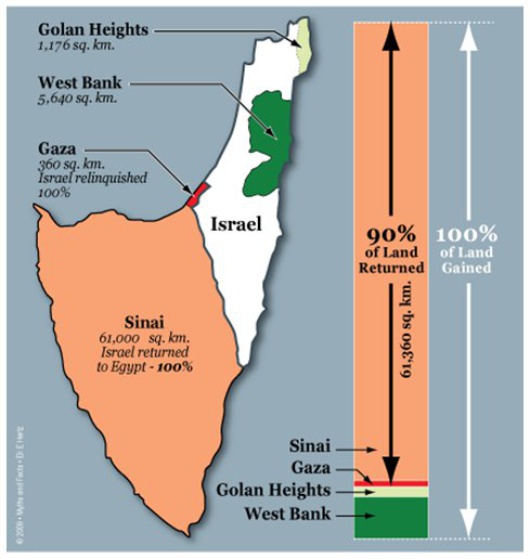
I have been advocating long Three State Option as the most pragmatic solution to Israeli-Palestinian conflict. For 19 years, Judea and Samaria were part of Jordan, its population Jordanian citizens, and the geographic juxtaposition between Israel and Jordan should make delineating the border between the two countries in an agreement considerably easier than reaching a deal on a border between Israel and a Palestinian state that might be established in the area. If three state solution will be implemented so Israel would receive security guarantees from Jordan's monarchy, which made peace with Israel in 1994, rather than from a politically enfeebled Palestinian president as well from Egypt, which has peace deal with Israel since 1978, rather than from outside supervised Hamas.
As Egypt now is opening Rafah border crossing and when its current leadership better cooperates with Hamas it would be easier than before logistically and politically annex Gaza with Egypt e.g. as autonomous province with cultural and economical independence. Annexing Palestinian West Bank areas similar way with Jordan could decrease Israeli security concerns and hence allow smaller buffer zones and less fragmented area for Palestinians. Once the three-state option is reality the work can begin of building infrastructure and maybe even freedom, democracy, and the rule of law in Egypt and Jordan. (More e.g. in The Three-State Option could solve Gaza Conflict )
An excerpt from historical background of disputed territories
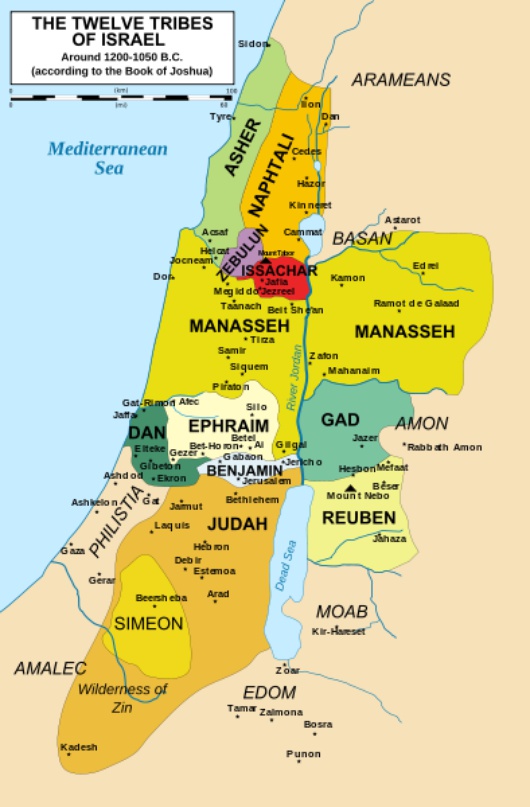 I
generally ignore Israel’s biblical rights (e.g that the borders of
Israel in accordance with the divine promise in the Bible: from the
Euphrates to the river of Egypt) related to Judea and Samaria aka
Westbank but as they explain one part of Israeli's arguments today I
would like to mention from historical rights the era of tribal periods
when the Israelite tribes lived as a confederation. The Torah traces the
Israelites to the patriarch Jacob, grandson of Abraham, who was later
renamed Israel. Jacob's twelve sons "Israelites" (also the "Twelve
Tribes" or "Children of Israel") means both the direct descendants of
the patriarch Jacob/Israel as well as the historical populations of the
United Kingdom of Israel.This united monarchy was established in around
1020 BCE when the tribes united.
I
generally ignore Israel’s biblical rights (e.g that the borders of
Israel in accordance with the divine promise in the Bible: from the
Euphrates to the river of Egypt) related to Judea and Samaria aka
Westbank but as they explain one part of Israeli's arguments today I
would like to mention from historical rights the era of tribal periods
when the Israelite tribes lived as a confederation. The Torah traces the
Israelites to the patriarch Jacob, grandson of Abraham, who was later
renamed Israel. Jacob's twelve sons "Israelites" (also the "Twelve
Tribes" or "Children of Israel") means both the direct descendants of
the patriarch Jacob/Israel as well as the historical populations of the
United Kingdom of Israel.This united monarchy was established in around
1020 BCE when the tribes united.
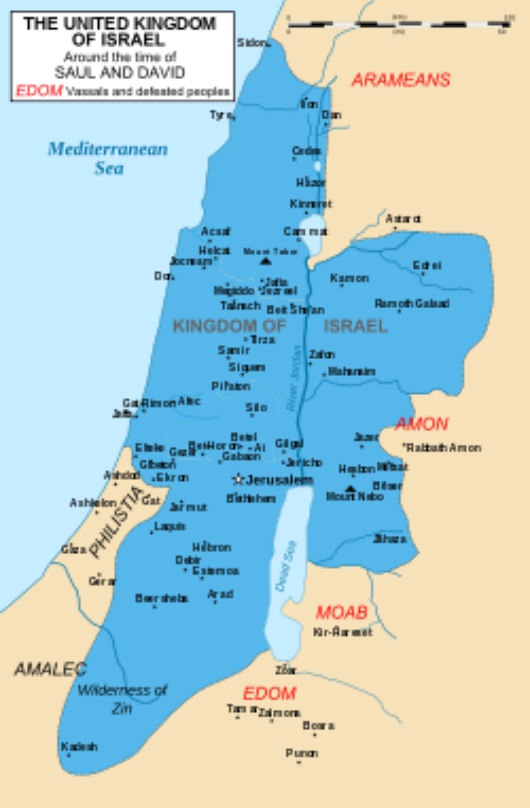 David, the second King of Israel, created a strong unified Israelite monarchy in c. 1006 BCE and also established Jerusalem as its national capital 3,000 years ago. Beginning in the 5th century BCE, the remnants of the Israelite tribes came to be referred to as Jews.
David, the second King of Israel, created a strong unified Israelite monarchy in c. 1006 BCE and also established Jerusalem as its national capital 3,000 years ago. Beginning in the 5th century BCE, the remnants of the Israelite tribes came to be referred to as Jews.
Contemporary history gives more relevant view to present conflict. From Israeli point of view the legal rights to the land are based to the Balfour Declaration of 1917 and the League of Nations San Remo Conference of 1920. The geographical area called Palestine was to become a homeland for the Jewish Homeland. The land was administered as British mandate. Britain split off 75% of Palestine to establish the Emirate of Transjordan split off 75% of Palestine to establish the Emirate of Transjordan on the eastern bank of the Jordan river. This part is now known as the modern Kingdom of Jordan. The Peel Commission of the late 1930’s endeavored to partition the western portion of the original Jewish Homeland into Jewish and Arab mini-states, the latter to mollify Arab rioters fomented by the Grand Mufti of Jerusalem, Haj Amin al Husseini, an close ally with Hitler during WWII.
In 1948, Arab armies and volunteers - from Egypt, Jordan, Iraq, Lebanon, Syria, Saudi Arabia, Yemen and Morocco - attacked the newborn State of Israel. Transjordan annexed the area intended for an Arab state, and renamed itself the Kingdom of Jordan, calling the annexed area the "West Bank". Egypt took over Gaza. These areas controlled by Jordan and Egypt from 1948 to 1967 came under Israeli control during the Six Day War of 1967.
 As
a result of the 1978 Camp David accords - in which Egypt recognized the
right of Israel to exist and normal relations were established and
Sinai was returned to Egypt. A peace treaty was also made with Jordan
and which officially renounced its claim to the West Bank in 1988 when
the late King Hussein announced his kingdom was cutting off its
administrative and legal ties to the area.
As
a result of the 1978 Camp David accords - in which Egypt recognized the
right of Israel to exist and normal relations were established and
Sinai was returned to Egypt. A peace treaty was also made with Jordan
and which officially renounced its claim to the West Bank in 1988 when
the late King Hussein announced his kingdom was cutting off its
administrative and legal ties to the area.
Some of my related articles:
PaliLeaks, land swaps and desperate search of peaceIsraeli Vs Palestine Refugees – In, Out and No Return US Giving a “Yellow Light” to an Israeli StrikeSaudi-Israeli cooperation for attacking Iran Cyber war has became a tool between political and military optionsFragments of the Middle East peace effortsThe Three-State Option could solve Gaza Conflict